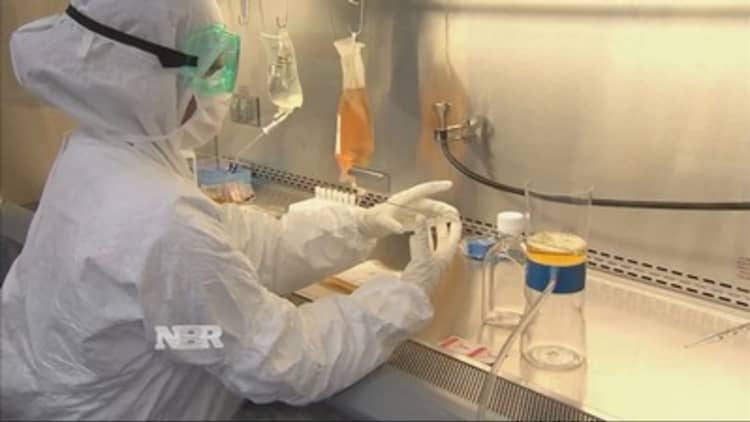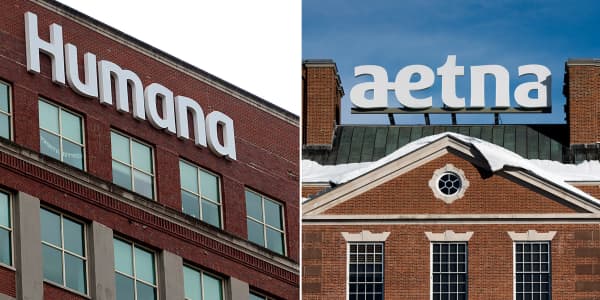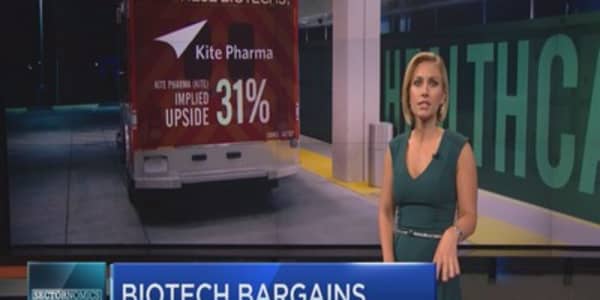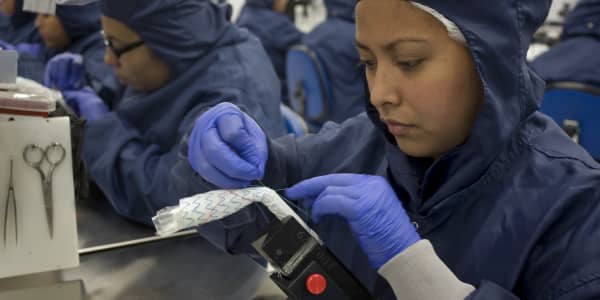The stock-moving news flow started early out of the American Society of Clinical Oncology meeting in Chicago.
On Friday, Bristol-Myers Squibb shares sank 6 percent after it unveiled findings for its immunotherapy Opdivo in the most common form of lung cancer, called non-squamous non-small cell lung cancer. The study showed the medicine helped some patients live longer than the chemotherapy docetaxel, but disappointed investors when it showed it may work less well in patients whose tumors don't express a marker known as PDL1, short for programmed cell death.
Read MoreTrading pharma: 5 plays on Bristol's rough day
"Tumors with low PDL1 expression do not appear to derive a benefit from Opdivo over docetaxel," Evercore ISI analyst Mark Schoenebaum wrote in a research note Friday. The data "appear to open the door to competitors in the second-line setting (such as Merck and Roche) who are a little further behind but are expected to file soon."
Other analysts argued the market reaction was overdone. Alex Arfaei at BMO Capital Markets, in a research note Friday, said that "even in low PDL1 patients... Opdivo has a superior profile than the standard of care," and that it should still dominate the market.
The drug is part of a class known as checkpoint inhibitors that empower the immune system against cancer. Immunotherapy in general is a key focus at the conference, dominating headlines with drugs being developed by Merck, Roche, AstraZeneca and others in addition to Bristol-Myers.
Read More
Bristol also presented several other datasets on Opdivo at the conference, including a combination study with its other immunotherapy drug, Yervoy. Opdivo's on the market for melanoma as well as another form of lung cancer, advanced squamous non-small cell lung cancer. Merck's Keytruda, in the same class, is on the market in melanoma.
Outside the immunotherapy world, Clovis Oncology, a smaller drug maker, had data on two medicines, rociletinib for lung cancer, and rucaparib, for ovarian cancer.
Cory Kasimov, an analyst with JPMorgan, described the company's showing at ASCO "controversial," calling the data a "mixed bag."
"Overall we are encouraged by the impressive response rates and duration of response seen so far with rucaparib, and think that it compares favorably to the data we have seen from other PARPs in ovarian cancer to date," Kasimov wrote in a Sunday research note, referring to the drug's mechanism of action. "Under normal circumstances, this update could get investors to take a much closer look at this candidate, but for now we expect ruca to still be overshadowed by roci."
Kasimov called Clovis' data on rociletinib "so-so," noting it showed the drug helped patients live eight months without their cancer progressing, down from 10.4 months previously reported, and short of the 13.5 months for a competing drug from AstraZeneca, known as AZD9291. Clovis' drug has a side effect of high blood sugar, which the company said could be managed with commonly used medicines.

ASCO also saw updates on medicines for multiple myeloma from Johnson & Johnson, Amgen and Celgene. J&J's daratumumab is in the middle stages of testing, and Cowen analyst Josh Jennings said last week the drug may get approved based on the data being presented at ASCO. Amgen and Celgene both had updates on their approved drugs Kyprolis and Revlimid that Kasimov described positively.
Data from a late-stage study of CTI BioPharma's drug for the bone marrow disorder myelofibrosis were included in the "late breakers," among the most highlighted datasets of the conference. The medicine, pacritinib, "represents an advance in our field," Dr. Lloyd Damon, a clinical professor in the department of medicine at the University of California San Francisco, said in a presentation Saturday. CTI is partnered with Baxter on the medicine.
Read MoreHere's why Puma, Clovis shares are poised to move
An increased focus was also turned on the high cost of many of the medicines highlighted at the conference, a side effect increasingly being referred to as "financial toxicity."
In a high-profile presentation at the meeting, Memorial Sloan Kettering Cancer Center's Dr. Leonard Saltz highlighted combination therapies in particular, saying the costs—often more than $10,000 for each drug alone—are unsustainable.
There are still two more days of ASCO, with more updates expected from Puma Biotechnology and others. In addition to updated data on its breast cancer drug neratinib, which disappointed investors on an initial look earlier in May, Puma hosts an investor event Monday night that analysts say could be key to changing the market's mind on the drug.




